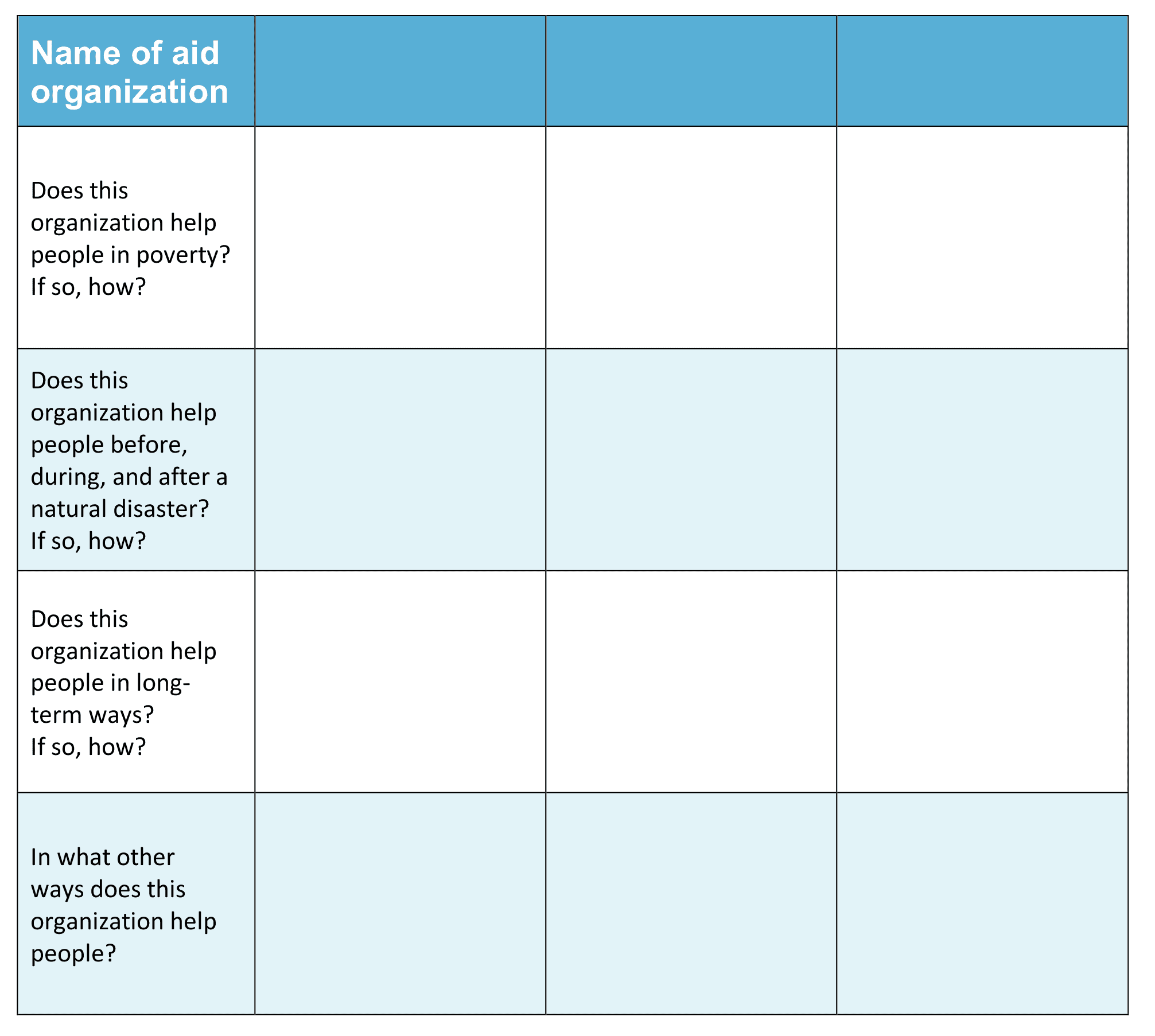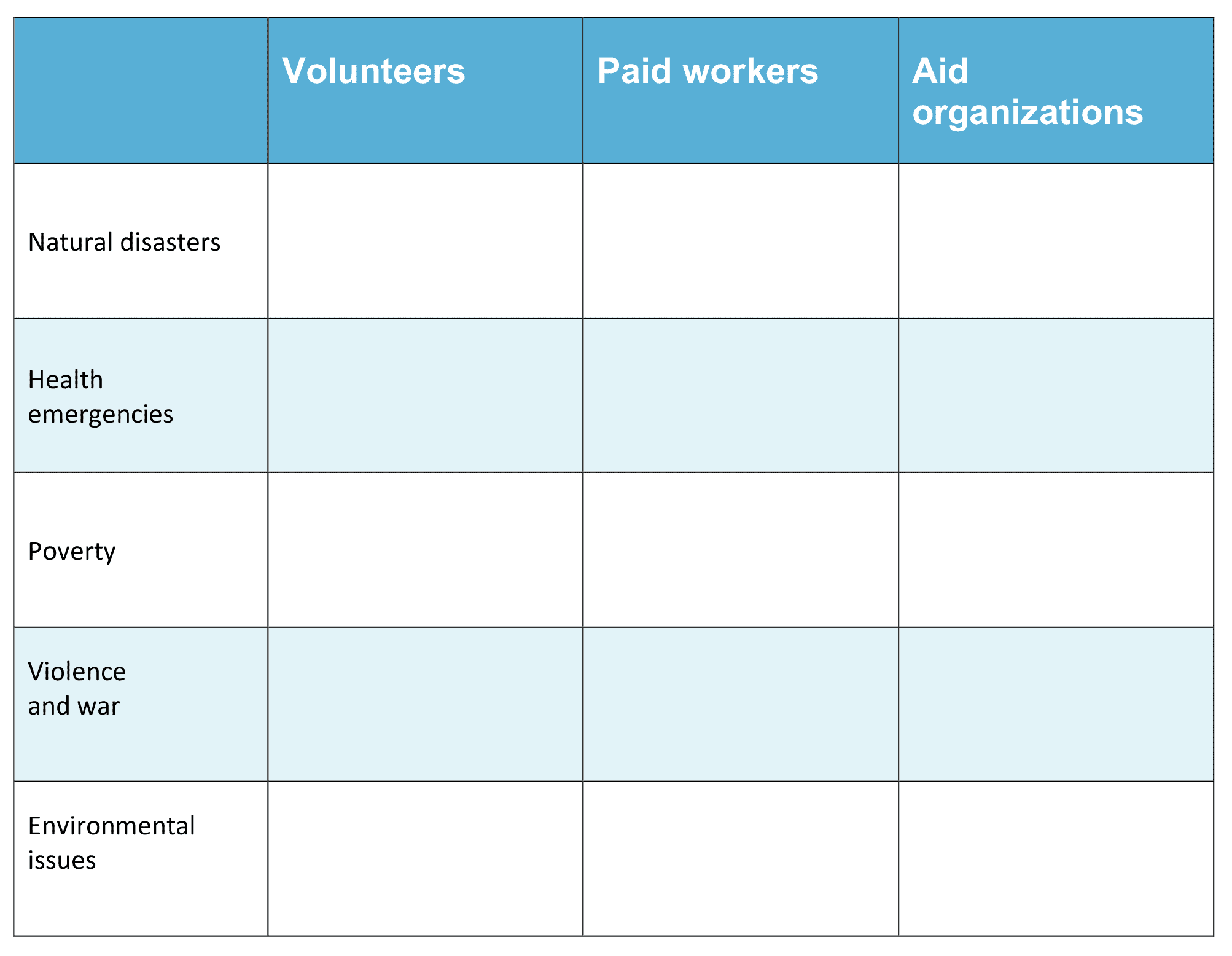Information for Teachers
Curriculum links
This investigation is linked to the following C3 Social Studies Standards for Grades 3–5.
D2.Civ.2.3-5. Explain how a democracy relies on people’s responsible participation, and draw implications for how individuals should participate.
D2.Civ.8.3-5. Identify civic virtues and democratic principles that guide government, society, and communities.
D2.Geo.9.3-5. Analyze the effects of catastrophic environmental events on human settlements and migration.
How to search the internet
1 Keep your request short
Fewer words will give a more accurate search.
2 Choose exactly what you want
For example: Arctic Circle Climate
3 Use quotes
Double quotes around a set of words tell the search engine to consider those exact words in that exact order without any change. For example: “Arctic Circle Climate”
4 Use the plus sign (+)
If you add a plus sign (+) between words, the internet will search for all the words. For example: migrate+birds+whales+mammal
5 Use the minus sign (–) to say what you don’t want
Use a minus sign (–) to show words you do not want to appear in your results. For example: if you search for burrowing animals and do not want mammals in your search, –mammals will exclude mammals. Note that you need to put a space before the minus sign for the word to be excluded.
6 Be very clear about what you don’t want
Part 1
Ask questions and define problems
After reading Helping Hands, you may have further questions about the different ways people work together to help others.
List your questions.
- Compare your list with questions that others have.
- Choose a question you would like to investigate.
- You can work alone, with a partner, or in a small group.
You may want to choose one or more of these questions to investigate
Q1. How do people help others in their local community?
Q2. How do people help others before, during, and after a natural disaster emergency such as a wildfire or hurricane?
Q3. In what ways do international aid organizations help people in need?
Q4. Can one person “make a difference?” Find examples to back up your opinion.
Q5. What can we do to help people in need?
Go to Part 2 Investigate →Part 2
Investigate
Helpful websites
You may want to use websites to help you’re your investigations.
Students can search for these topics: Aid organizations; Emergency service workers. Or use words such as:
The+red+cross
Unicef
Go to Part 3 Record data →Part 3
Record data
Find a way of recording your information that will allow you to see any patterns in the data.
Data Chart for ways that aid organizations help others in need
(Download and change to suit your information)
 Download Chart
Download Chart
Go to Part 4 Organize, analyze, and interpret data →
Part 4
Organize, analyze, and interpret data
1. Look over the information you have gathered and the patterns you have found.
When do people need help?
What is the range of ways that people can help others?
How would you like to help others?
2. Search for other patterns
What do large aid organizations have in common? In what ways are they different?
What do the different types of emergency service workers have in common? In what ways are they different?
3. Makes notes about what you find.
Go to Part 5 Present and share →Part 5
Present and share
Look over all your information that you have gathered in your investigation.
What are the most important ideas about people helping others in need?
Make a chart showing the most important ideas.
 Download Chart
Download Chart
← Return to menu